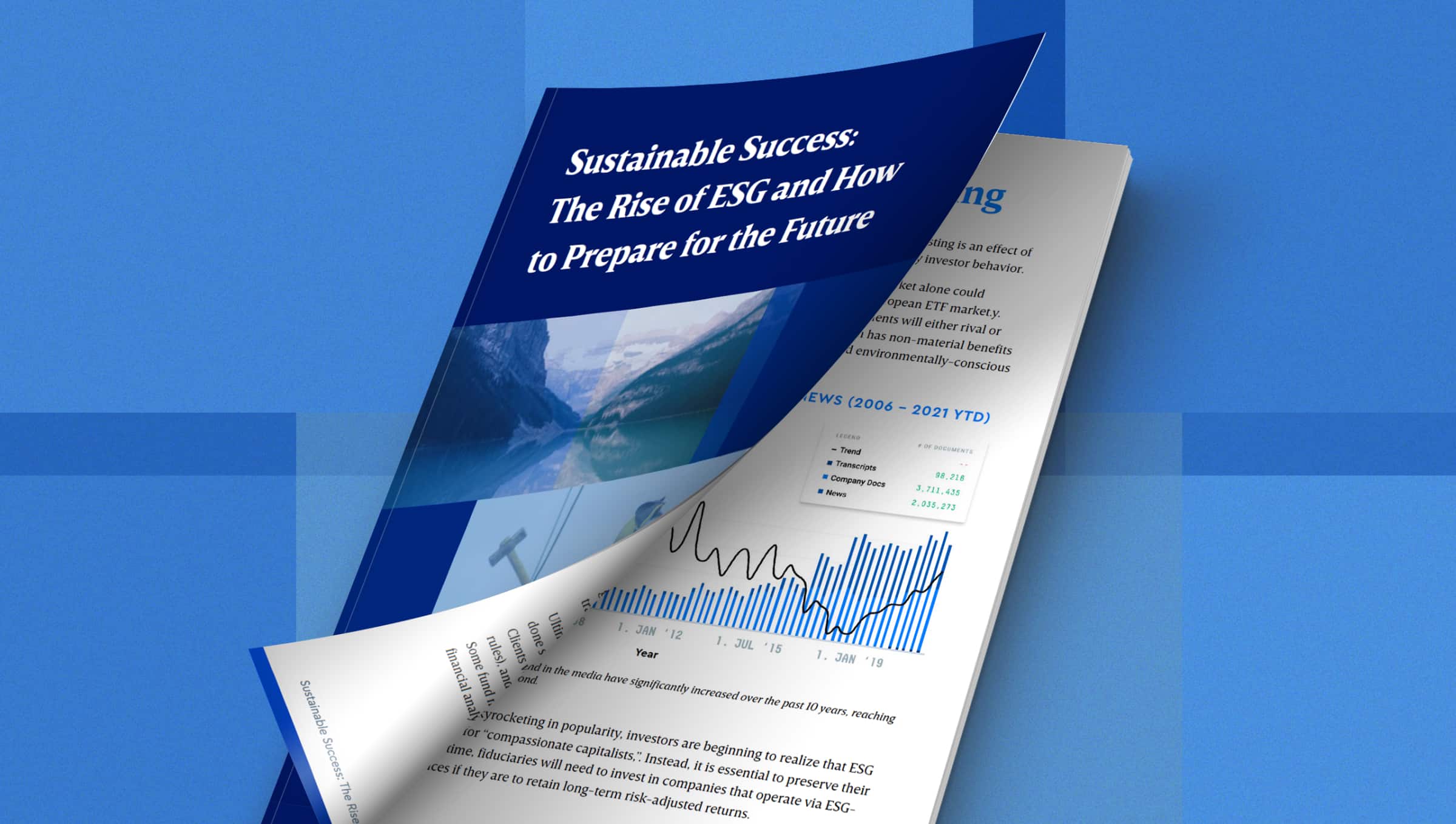ESG, alongside CSR and impact investing, is becoming more critical as companies try to marry their performance and responsibility with social, political, and economic issues important to the larger population.
Companies are wise to take on new ESG initiatives and devote more time to their earnings reports and calls to highlight their advancements in the ESG space. The potential for investors who are willing to choose companies with high ESG scores and relevant ESG initiatives continues to increase as a younger population of investors places even more of a premium on ESG-minded companies. However, ensuring that ESG companies positively impact and lead to higher returns is a tricky balance. There’s no formula for picking the right company based on their ESG strategies.
Joseph Poon, from DBS Private Banks, sums up the challenge of ESG well: “Sustainable investments have become increasingly important in value-adding investment portfolios. However, their pace of growth has been compromised as there’s still no clear definition for sustainable investments today, likely because it’s a relatively nascent – albeit fast-growing – space.”
Investors struggle with finding the best way to identify the right companies that align with their ESG values and are wary of companies who are “greenwashing.” At the crux of these challenges is data.
“The lack of clarity around sustainable investing is one of the biggest hurdles because it makes it hard for investors to get a simple answer about the right ESG (environmental, social, governance) options to meet their goals,” says Sherene Ban from The Business Times Singapore. “However, there are legitimate reasons for this “noise” and some ways to navigate it. Data is critical in any investment decision process. For sustainable investing, the requirement goes beyond financial statements – we need specific and comparable ESG data. However, the availability and quality of such data are a problem.”
So how can companies know what data to look for and how to find it to capitalize on this increasingly significant trend? Equally as important, what expectations and inquiries can they expect from existing and interested investors and shareholders?
Download our most recent white paper, Sustainable Success: The Rise of ESG and How to Prepare for the Future, to learn how ESG initiatives can bring an influx of new investments, how to avoid “greenwashing,” and what common ESG questions you should be expecting.
Download now



